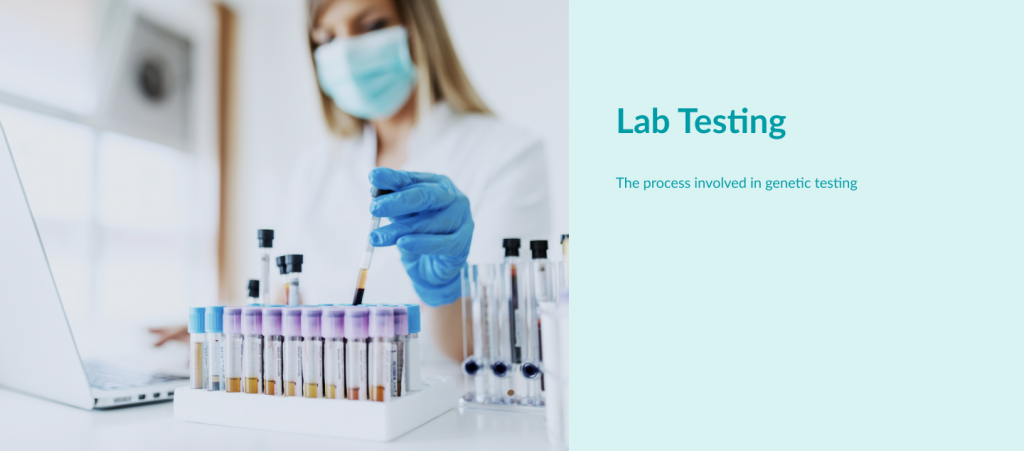
Once a person decides to proceed with genetic testing, a medical geneticist, primary care doctor, specialist, or nurse practitioner can order the test. Genetic testing is often done as part of a genetic consultation. This page tells you about the process involved in genetic testing.
What to Expect During Testing?
Genetic tests are usually requested by a person’s genetic counselor, doctor, or other health care provider who has reviewed the individual’s personal and family history. The genetic test options from which a health professional may select include those that look at a single gene and those that look for harmful variants in multiple genes at the same time. Tests of the latter type are called multigene (or panel) tests.
Testing is done on a small sample of bodily fluid or tissue—usually blood, but sometimes saliva, cells from inside the cheek, or skin cells. The sample is then sent to a laboratory that specializes in genetic testing. The laboratory returns the test results to the doctor or genetic counselor who requested the test. It usually takes several weeks or longer to get the test results.
Informed Consent
Before a person has a genetic test, it is important that he or she understands the testing procedure, the benefits and limitations of the test, and the possible consequences of the test results. The process of educating a person about the test and obtaining permission is called informed consent. “Informed” means that the person has enough information to make an educated decision about testing; “consent” refers to a person’s voluntary agreement to have the test done.
Informed consent for genetic testing is generally obtained by a doctor or genetic counselor during an office visit. The healthcare provider will discuss the test and answer any questions. If the person wishes to have the test, he or she will then usually read and sign a consent form.
Informed consent is not a contract, so a person can change his or her mind at any time after giving initial consent. A person may choose not to go through with genetic testing even after the test sample has been collected. A person simply needs to notify the healthcare provider if he or she decides not to continue with the testing process.
Sources:
- Adapted from NIH National Cancer Institute: Genetic Testing for inherited Cancer Susceptibility Syndromes https://www.cancer.gov/about-cancer/causes-prevention/genetics/genetic-testing-fact-sheet, accessed on August 14th, 2020.
- Courtesy of NLM Genetics Home Reference: How genetic testing is done? https://ghr.nlm.nih.gov/primer/testing/procedure, accessed on August 14th, 2020.
Additional Readings:
- What Happens During Genetic Testing for Cancer Risk, American Cancer Society https://www.cancer.org/cancer/cancer-causes/genetics/what-happens-during-genetic-testing-for-cancer.html

